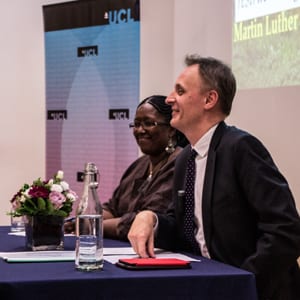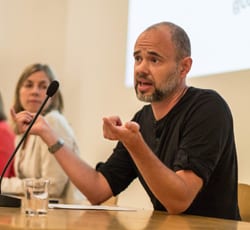UCL-Lancet Lecture 2013 – Charity does not rhyme with sustainability
By news editor, on 13 November 2013
![]() Written by Sujitha Selvarajah, a third year medical student, currently doing an intercalated BSc in Global Health.
Written by Sujitha Selvarajah, a third year medical student, currently doing an intercalated BSc in Global Health.
“My target is not my grandchild, my target is the child of the poorest woman in Rwanda,” said Rwanda’s Minister of Health, Dr Agnes Binagwaho at the 2013 Lancet Lecture on 6 November.
Less than 20 years ago, the Rwandan Genocide saw 10 percent of the population wiped out in 100 days. Since then, life expectancy has trebled with more than a million Rwandans no longer living in poverty.
Dr Binagwaho credits five principles as the pillars underpinning Rwanda’s ‘miracle’:
1. Ownership
2. Equity
3. Science
4. Participation
5. Sustainability
 Close
Close





